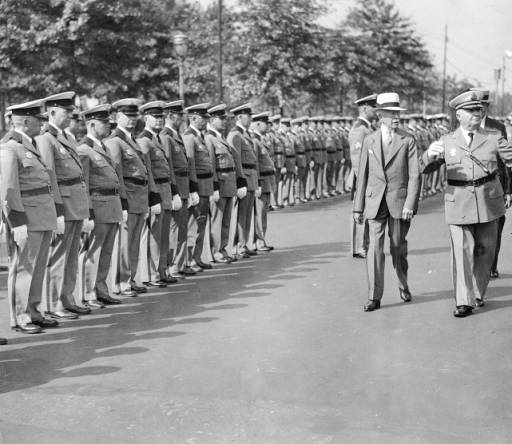Crime has always been a way of life in Philadelphia, including along Boathouse Row. In the 19th century, even before the elegant stone boathouses began to be built in 1860, the rowers’ small wooden boat shacks were regularly robbed by outlaws known as the “Schuylkill Rangers.”

Then in 1868, a police force known as the Fairmount Park Guards took residence in a building on the hill above Boathouse Row, bringing some law and order to the river. It was even used as a prison. That history comes to mind today as the Schuylkill Navy (the umbrella group for all the boatclubs) and the Bicycle Coalition of Greater Philadelphia’s youth cycling program recently moved into the Guards’ old headquarters.
Known as the Sedgeley Porter’s house, it was built in 1800. The tiny Gothic-style building was originally home to the porter who would carry visitors’ luggage to the nearby mansion known as Sedgeley, torn down some time after the Civil War.
Although I had driven by this tiny historic building dozens of times, it is hidden in plain sight and I never saw it until last week.

Traveling from the Zoo, if you cross the Girard Bridge and take your first right onto Sedgeley Drive, you’ll quickly come to a stop sign. Turn left up a tiny rutted road and the Sedgeley Porter’s house comes into view, with its random stone walls and wave-like roof edge. It’s the oldest surviving structure to be designed by America’s first professional architect, Benjamin LaTrobe (who also designed the long-gone Sedgeley mansion, not to mention the U.S. Capitol). Sedgeley was also touted as the first Gothic style structure in the United States.
When I was researching my book, Boathouse Row, I found numerous entries in the clubs’ minute books about break-ins.
Even before Penn alumni and students formed the University Barge Club in 1854, they would ride the “omnibus” (a horse-drawn bus) “in the interests of safety, to avoid the infamous Schuylkill Rangers,” according to the account of an early club member.
In one example, the Vesper Boat Club on April 6, 1871 offered $100 “for the arrest and conviction of the person or persons who robbed the Vesper Boat House, on the night of Tuesday April 2nd.” That’s about $2,000 in today’s dollars.
The Park Guards also patrolled the river for instances of “immoral” behavior. On May 17, 1871, the Captain of the Park Guard sent a notice to the Undine Barge Club: “Gentlemen: In consequence of numerous complaints from citizens, the Commissioners direct me to request that in future shirts be worn by the gentlemen of the clubs, while upon the river.” As a result of that warning, the club passed a motion allowing the men to row “in an undress uniform consisting of gauze shirts and the uniform pantaloons, during the warm weather.”
Then in 1878, the captain of the Vesper Boat Club announced at a special meeting that he had been “called upon by the Captain Park Guard in reference to a member of the club making frequent use of the Boathouse for immoral purposes.” The Guard requested that Vesper “bring the matter before his club at the earliest possible moment.” As a result, the member who so embarrassed the club was forced to resign.

The Fairmount Park Conservancy invited the Bicycle Coalition and the Schuylkill Navy to move into the Sedgeley Porter’s house after after Outward Bound moved its headquarters to the new Discovery Center.
Both the Coalition and the Schuylkill Navy are excited about sharing space because of their mutual commitment to city youth. The bike coalition will train youth in bike safety, encourage riding, and offer educational support while the Schuylkill Navy sponsors the Philadelphia Youth Regatta and the Stotesbury Regatta – the largest high school regatta in the world. It also supports Philadelphia City Rowing, which mentors city youth engaged in the sport.
Said Bonnie Mueller, secretary of the Schuylkill Navy: “There’s a lot of synergy that we think exists,”